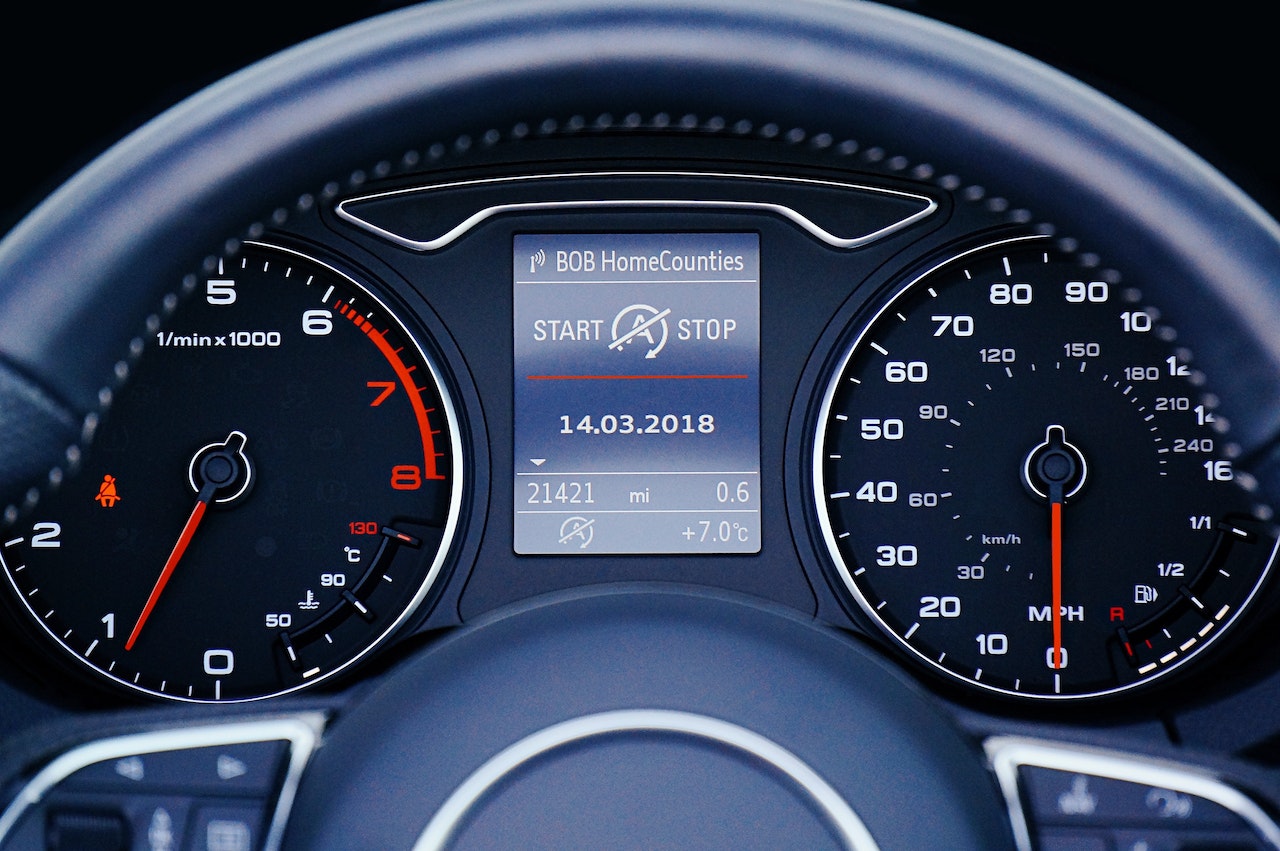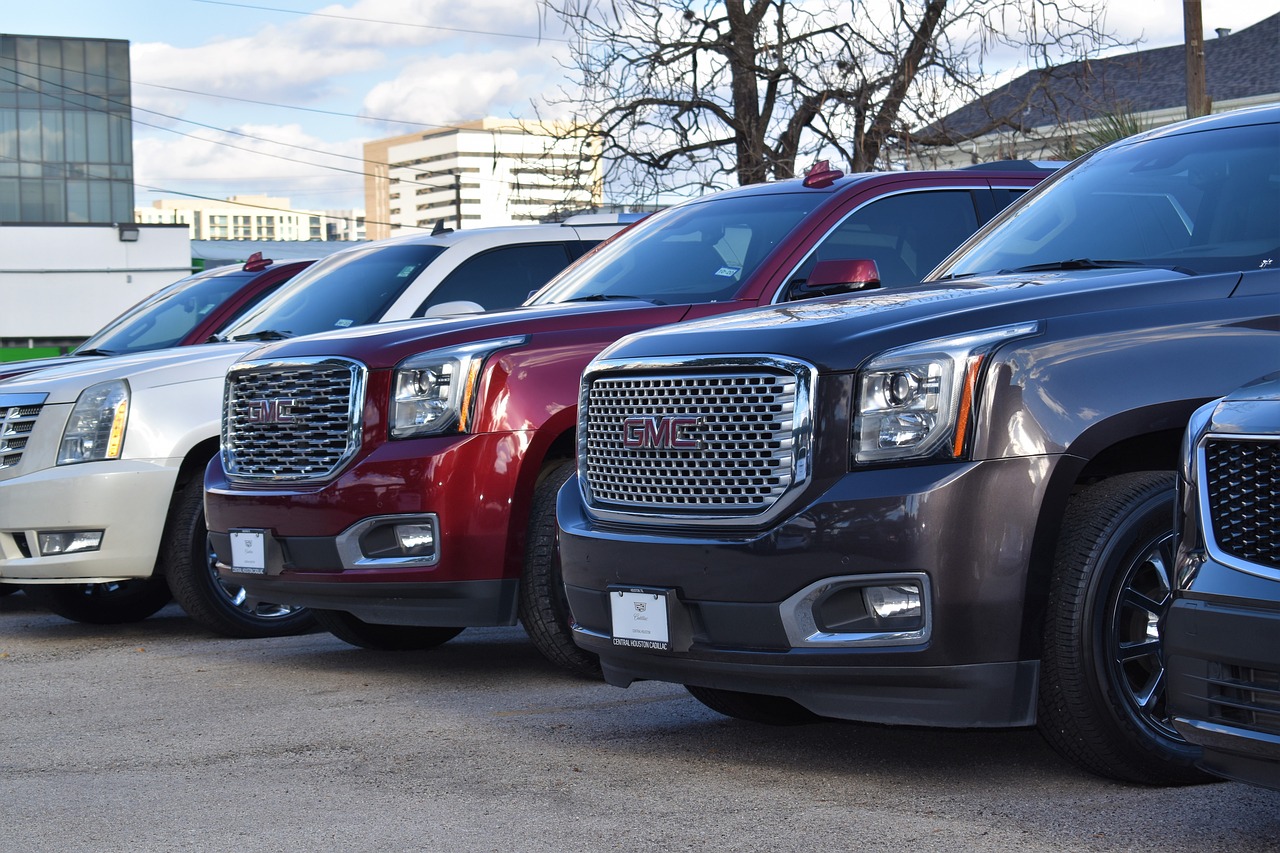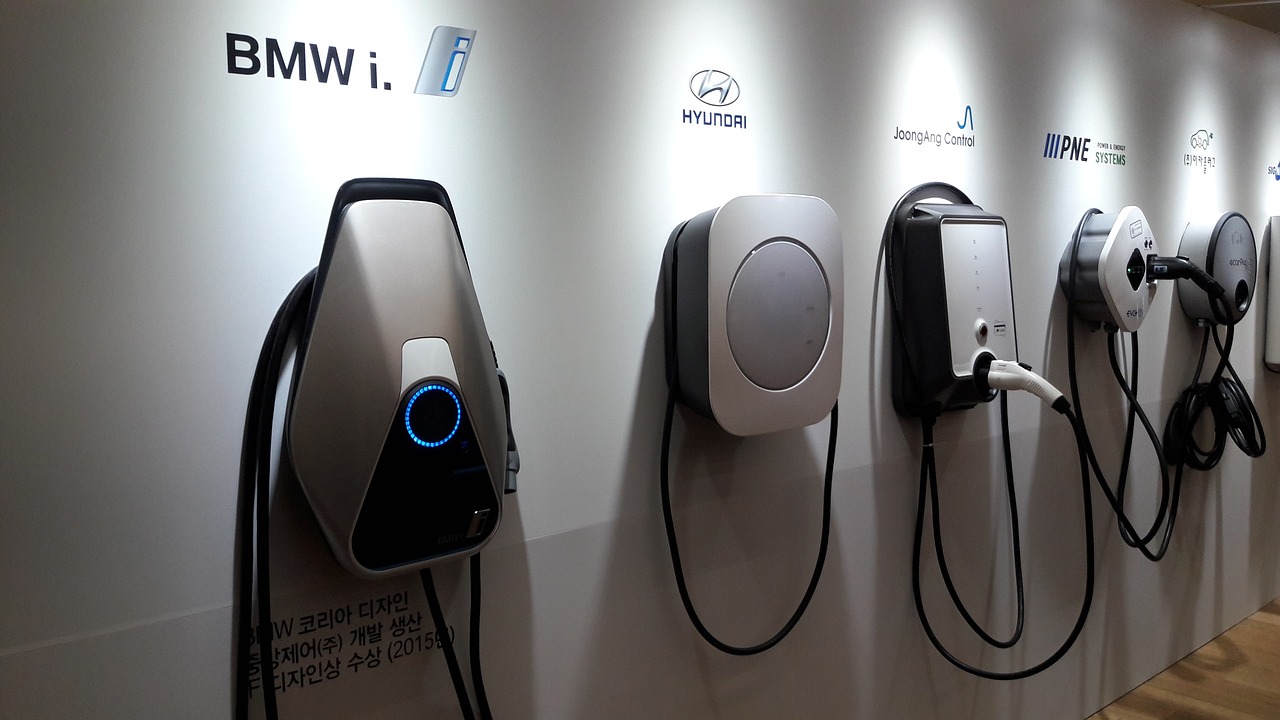Electric cars are becoming increasingly popular as people become more conscious of their impact on the environment. There are many reasons why electric cars are good, from their reduced carbon footprint to their low maintenance costs. In this article, we will explore some of the reasons why electric cars are a good choice for both the individual and the planet.
- Reduced carbon footprint. Electric cars produce zero emissions, which means they have a significantly smaller carbon footprint than traditional gasoline-powered cars. This is because they are powered by electricity, which can be generated from renewable sources such as wind and solar power. By driving an electric car, you can significantly reduce your contribution to air pollution and greenhouse gas emissions.
- Lower operating costs. Electric cars are much cheaper to operate than traditional cars. Electricity is generally cheaper than gasoline, and electric cars require much less maintenance. They don’t have oil to change, spark plugs to replace, or exhaust systems to maintain. Additionally, electric cars have fewer moving parts, which means they are less likely to require expensive repairs.
- Improved driving experience. Electric cars have instant torque, which means they can accelerate quickly and smoothly. This provides a more enjoyable driving experience compared to traditional cars, which can be sluggish and slow to respond. Additionally, electric cars are generally quieter than traditional cars, making for a more peaceful driving experience.
- Tax incentives and rebates. Many governments offer tax incentives and rebates for people who purchase electric cars. These incentives can significantly reduce the cost of buying an electric car, making it a more affordable option. Additionally, some cities offer free or discounted parking for electric cars, further reducing the cost of ownership.
- Range and charging infrastructure. The range of electric cars has improved significantly in recent years. Many electric cars now offer a range of over 200 miles, which is sufficient for most people’s daily driving needs. Additionally, the charging infrastructure is rapidly expanding, making it easier than ever to find a place to charge your electric car. Many charging stations are now located in public places like shopping centers and restaurants, so you can charge your car while you go about your day.
- Good for the environment. Electric cars are good for the environment in several ways. As mentioned, they produce zero emissions, which means they don’t contribute to air pollution or greenhouse gas emissions. Additionally, electric cars help to reduce our dependence on fossil fuels, which are finite resources.
There are many reasons why electric cars are good. They have a reduced carbon footprint, lower operating costs, improved driving experience, tax incentives and rebates, improved range, and charging infrastructure, and are good for the environment. With these benefits, it’s easy to see why electric cars are becoming an increasingly popular choice for those looking to reduce their impact on the environment and save money on operating costs.
14 Most Reliable Electric Cars
Electric cars are becoming increasingly popular with each passing year. As more manufacturers enter the market, there is a wider range of options available to consumers. However, not all electric cars are created equal. In this article, we will look at 15 of the most reliable electric cars available on the market today.
Tesla Model 3
The Tesla Model 3 has become one of the most popular electric cars on the market, and for good reason. Not only does it offer impressive performance and a sleek design, but it has also earned a reputation for reliability. In this section, we will explore some of the reasons why the Tesla Model 3 is a reliable car.
- Battery life and range. The battery life and range of the Tesla Model 3 are among the best in the electric car market. It can go up to 353 miles on a single charge, which is significantly more than most other electric cars. Additionally, the battery is designed to last for many years, which means you can rely on it for a long time.
- High safety ratings. The Tesla Model 3 has earned high safety ratings from several independent agencies, including the National Highway Traffic Safety Administration (NHTSA) and the Insurance Institute for Highway Safety (IIHS). It earned a perfect five-star rating from the NHTSA for its overall safety, and it was named a 2021 IIHS Top Safety Pick+.
- Quality materials and construction. Tesla uses high-quality materials and construction methods to build Model 3. The body is made of aluminum and steel, which makes it both lightweight and strong. Additionally, the interior is well-designed and made of high-quality materials, which means it can stand up to wear and tear over time.
- Software updates. Tesla is known for its frequent software updates, which can fix bugs and improve the performance of the car. These updates are automatically downloaded to the car, which means you don’t have to take it in for service. Additionally, Tesla can diagnose and fix many issues remotely, which saves time and money.
- Low maintenance costs. Electric cars, in general, have lower maintenance costs than traditional cars, and the Tesla Model 3 is no exception. It doesn’t require oil changes or other regular maintenance that traditional cars need. Additionally, Tesla’s electric drivetrain has fewer moving parts than a traditional gasoline engine, which means there are fewer things that can go wrong.
- Excellent customer support. Tesla has a reputation for providing excellent customer support. It has a 24/7 customer service line that you can call for support, and it also has a network of service centers and mobile technicians who can come to you if you need service. Additionally, Tesla offers a comprehensive warranty that covers many issues that may arise with the car.
Tesla Model 3 is a reliable car that offers impressive battery life and range, high safety ratings, quality materials and construction, frequent software updates, low maintenance costs, and excellent customer support. If you’re in the market for an electric car and want a reliable option, the Tesla Model 3 is definitely worth considering.
Chevrolet Bolt
The Chevrolet Bolt is a popular electric car that has earned a reputation for reliability. It boasts an impressive range and is designed with high-quality materials that make it a reliable option for anyone looking for an electric car. In this section, we will explore some of the reasons why the Chevrolet Bolt is a reliable car.
- Battery life and range. One of the most important features of an electric car is its battery life and range. The Chevrolet Bolt has an impressive range of up to 259 miles on a single charge. This means that you can drive it for long distances without having to stop and recharge. Additionally, the battery is designed to last for many years, which means you can rely on it for a long time.
- Safety features. The Chevrolet Bolt is designed with several safety features that make it a reliable and safe car to drive. It has earned high safety ratings from independent agencies like the National Highway Traffic Safety Administration (NHTSA) and the Insurance Institute for Highway Safety (IIHS). Some of the safety features include a rearview camera, forward collision alert, and lane departure warning.
- Quality materials and construction. The Chevrolet Bolt is built with high-quality materials that are designed to last for many years. The body is made of lightweight materials that are both strong and durable. Additionally, the interior is well-designed and made of high-quality materials, which means it can stand up to wear and tear over time.
- Low maintenance costs. One of the benefits of electric cars is that they have lower maintenance costs than traditional gasoline cars. The Chevrolet Bolt is no exception. It doesn’t require oil changes or other regular maintenance that traditional cars need. Additionally, the electric drivetrain has fewer moving parts than a traditional gasoline engine, which means there are fewer things that can go wrong.
- Warranty and customer support. Chevrolet offers a comprehensive warranty on the Bolt that covers many issues that may arise with the car. Additionally, Chevrolet has a network of service centers and mobile technicians who can come to you if you need service. This means that you can rely on Chevrolet’s customer support to help you with any issues that you may have with your Bolt.
- User-friendly technology. The Chevrolet Bolt is designed with user-friendly technology that makes it easy to use and reliable. It has a touchscreen display that is intuitive and easy to navigate. Additionally, it has features like remote start and keyless entry that make it easy to use and convenient.
Chevrolet Bolt is a reliable car that offers an impressive range, high safety ratings, quality materials and construction, low maintenance costs, a comprehensive warranty, and user-friendly technology. If you’re in the market for an electric car and want a reliable option, the Chevrolet Bolt is definitely worth considering.
Audi e-Tron
Audi e-Tron is a luxury electric SUV that has earned a reputation for reliability. It boasts impressive performance, a luxurious interior, and advanced technology. In this section, we will explore some of the reasons why the Audi e-Tron is a reliable car.
- High-quality materials and construction. Audi is known for its high-quality materials and construction, and the e-Tron is no exception. The body of the e-Tron is made of lightweight materials that are both strong and durable. Additionally, the interior is well-designed and made of high-quality materials, which means it can stand up to wear and tear over time.
- Advanced safety features. The Audi e-Tron is designed with several advanced safety features that make it a reliable and safe car to drive. It has earned high safety ratings from independent agencies like the National Highway Traffic Safety Administration (NHTSA) and the Insurance Institute for Highway Safety (IIHS). Some of the safety features include adaptive cruise control, lane departure warning, and blind spot monitoring.
- Battery life and range. The battery life and range of the Audi e-Tron are among the best in the electric car market. It can go up to 222 miles on a single charge, which is sufficient for most people’s daily driving needs. Additionally, the battery is designed to last for many years, which means you can rely on it for a long time.
- Advanced technology. The Audi e-Tron is designed with advanced technology that makes it reliable and easy to use. It has a touchscreen display that is intuitive and easy to navigate. Additionally, it has features like remote start and keyless entry that make it easy to use and convenient.
- Low maintenance costs. Electric cars, in general, have lower maintenance costs than traditional cars, and the Audi e-Tron is no exception. It doesn’t require oil changes or other regular maintenance that traditional cars need. Additionally, the electric drivetrain has fewer moving parts than a traditional gasoline engine, which means there are fewer things that can go wrong.
- Warranty and customer support. Audi offers a comprehensive warranty on the e-Tron that covers many issues that may arise with the car. Additionally, Audi has a network of service centers and mobile technicians who can come to you if you need service. This means that you can rely on Audi’s customer support to help you with any issues that you may have with your e-Tron.
Audi e-Tron is a reliable car that offers high-quality materials and construction, advanced safety features, impressive battery life and range, advanced technology, low maintenance costs, and a comprehensive warranty. If you’re in the market for an electric car and want a reliable and luxurious option, the Audi e-Tron is definitely worth considering.
Kia Niro
Kia Niro is a popular electric crossover SUV that has earned a reputation for reliability. It offers a comfortable ride, a spacious interior, and impressive fuel economy. In this section, we will explore some of the reasons why the Kia Niro is a reliable car.
- High safety ratings. The Kia Niro has earned high safety ratings from independent agencies like the National Highway Traffic Safety Administration (NHTSA) and the Insurance Institute for Highway Safety (IIHS). It earned a perfect five-star rating from the NHTSA for its overall safety and was named a 2021 IIHS Top Safety Pick+.
- Impressive fuel economy. The Kia Niro offers impressive fuel economy, with an estimated 53 mpg in the city and 48 mpg on the highway. This is due to its advanced hybrid powertrain, which combines a gasoline engine with an electric motor. The result is a car that is both fuel-efficient and environmentally friendly.
- High-quality materials and construction. The Kia Niro is built with high-quality materials that are designed to last for many years. The body is made of lightweight materials that are both strong and durable. Additionally, the interior is well-designed and made of high-quality materials, which means it can stand up to wear and tear over time.
- Low maintenance costs. The Kia Niro is a hybrid car, which means it has lower maintenance costs than traditional gasoline cars. It doesn’t require oil changes or other regular maintenance that traditional cars need. Additionally, the hybrid powertrain has fewer moving parts than a traditional gasoline engine, which means there are fewer things that can go wrong.
- Warranty and customer support. Kia offers a comprehensive warranty on the Niro that covers many issues that may arise with the car. Additionally, Kia has a network of service centers and mobile technicians who can come to you if you need service. This means that you can rely on Kia’s customer support to help you with any issues that you may have with your Niro.
- Advanced technology. The Kia Niro is designed with advanced technology that makes it reliable and easy to use. It has a touchscreen display that is intuitive and easy to navigate. Additionally, it has features like adaptive cruise control and lane departure warning that make it safe and convenient to drive.
Kia Niro is a reliable car that offers high safety ratings, impressive fuel economy, high-quality materials and construction, low maintenance costs, a comprehensive warranty, and advanced technology. If you’re in the market for a hybrid car and want a reliable option, the Kia Niro is definitely worth considering.
Hyundai Kona
The Hyundai Kona Electric is a popular electric crossover SUV that has earned a reputation for reliability. It offers an impressive range, a spacious interior, and advanced safety features. In this section, we will explore some of the reasons why the Hyundai Kona Electric is a reliable car.
- Impressive range. The Hyundai Kona Electric has an impressive range of up to 258 miles on a single charge, which is among the best in the electric car market. This means that you can drive it for long distances without having to stop and recharge. Additionally, the battery is designed to last for many years, which means you can rely on it for a long time.
- High safety ratings. The Hyundai Kona Electric has earned high safety ratings from independent agencies like the National Highway Traffic Safety Administration (NHTSA) and the Insurance Institute for Highway Safety (IIHS). It earned a perfect five-star rating from the NHTSA for its overall safety and was named a 2021 IIHS Top Safety Pick+.
- Quality materials and construction. The Hyundai Kona Electric is built with high-quality materials that are designed to last for many years. The body is made of lightweight materials that are both strong and durable. Additionally, the interior is well-designed and made of high-quality materials, which means it can stand up to wear and tear over time.
- Low maintenance costs. Electric cars, in general, have lower maintenance costs than traditional cars, and the Hyundai Kona Electric is no exception. It doesn’t require oil changes or other regular maintenance that traditional cars need. Additionally, the electric drivetrain has fewer moving parts than a traditional gasoline engine, which means there are fewer things that can go wrong.
- Warranty and customer support. Hyundai offers a comprehensive warranty on the Kona Electric that covers many issues that may arise with the car. Additionally, Hyundai has a network of service centers and mobile technicians who can come to you if you need service. This means that you can rely on Hyundai’s customer support to help you with any issues that you may have with your Kona Electric.
- Advanced technology. The Hyundai Kona Electric is designed with advanced technology that makes it reliable and easy to use. It has a touchscreen display that is intuitive and easy to navigate. Additionally, it has features like lane departure warning and forward collision warning that make it safe and convenient to drive.
Hyundai Kona Electric is a reliable car that offers an impressive range, high safety ratings, quality materials and construction, low maintenance costs, a comprehensive warranty, and advanced technology. If you’re in the market for an electric car and want a reliable option, the Hyundai Kona Electric is definitely worth considering.
Nissan Leaf
The Nissan Leaf is one of the most popular electric cars on the market, and for good reason. It offers an impressive range, a comfortable interior, and a reputation for reliability. In this section, we will explore some of the reasons why the Nissan Leaf is a reliable car.
- Impressive range. The Nissan Leaf has an impressive range of up to 149 miles on a single charge, which is sufficient for most people’s daily driving needs. Additionally, the battery is designed to last for many years, which means you can rely on it for a long time.
- High safety ratings. The Nissan Leaf has earned high safety ratings from independent agencies like the National Highway Traffic Safety Administration (NHTSA) and the Insurance Institute for Highway Safety (IIHS). It earned a five-star rating from the NHTSA for its overall safety and was named a 2021 IIHS Top Safety Pick+.
- Low maintenance costs. Electric cars, in general, have lower maintenance costs than traditional cars, and the Nissan Leaf is no exception. It doesn’t require oil changes or other regular maintenance that traditional cars need. Additionally, the electric drivetrain has fewer moving parts than a traditional gasoline engine, which means there are fewer things that can go wrong.
- Quality materials and construction. The Nissan Leaf is built with high-quality materials that are designed to last for many years. The body is made of lightweight materials that are both strong and durable. Additionally, the interior is well-designed and made of high-quality materials, which means it can stand up to wear and tear over time.
- Warranty and customer support. Nissan offers a comprehensive warranty on the Leaf that covers many issues that may arise with the car. Additionally, Nissan has a network of service centers and mobile technicians who can come to you if you need service. This means that you can rely on Nissan’s customer support to help you with any issues that you may have with your Leaf.
- User-friendly technology. The Nissan Leaf is designed with user-friendly technology that makes it easy to use and reliable. It has a touchscreen display that is intuitive and easy to navigate. Additionally, it has features like keyless entry and push-button start that make it easy to use and convenient.
Nissan Leaf is a reliable car that offers an impressive range, high safety ratings, low maintenance costs, quality materials and construction, a comprehensive warranty, and user-friendly technology. If you’re in the market for an electric car and want a reliable option, the Nissan Leaf is definitely worth considering.
Ford Mustang Mach-E
The Ford Mustang Mach-E is a stylish and powerful electric SUV that has gained attention for its impressive performance, innovative design, and advanced technology. It’s a reliable car that is engineered to deliver a smooth and comfortable ride while also being environmentally friendly. In this section, we will explore some of the reasons why the Ford Mustang Mach-E is a reliable car.
- Impressive range and fast charging. The Mustang Mach-E offers an impressive range of up to 305 miles on a single charge, which is among the highest in the electric car market. It also features fast-charging technology that can add up to 61 miles of range in just 10 minutes when using a DC fast charger.
- Advanced safety features. The Ford Mustang Mach-E is designed with several advanced safety features that make it a reliable and safe car to drive. It has earned high safety ratings from independent agencies like the National Highway Traffic Safety Administration (NHTSA) and the Insurance Institute for Highway Safety (IIHS). Some of the safety features include automatic emergency braking, lane departure warning, and a 360-degree camera.
- Quality materials and construction. The Mustang Mach-E is built with high-quality materials that are designed to last for many years. The body is made of lightweight materials that are both strong and durable. Additionally, the interior is well-designed and made of high-quality materials, which means it can stand up to wear and tear over time.
- Low maintenance costs. Electric cars, in general, have lower maintenance costs than traditional cars, and the Ford Mustang Mach-E is no exception. It doesn’t require oil changes or other regular maintenance that traditional cars need. Additionally, the electric drivetrain has fewer moving parts than a traditional gasoline engine, which means there are fewer things that can go wrong.
- Warranty and customer support. Ford offers a comprehensive warranty on the Mustang Mach-E that covers many issues that may arise with the car. Additionally, Ford has a network of service centers and mobile technicians who can come to you if you need service. This means that you can rely on Ford’s customer support to help you with any issues that you may have with your Mustang Mach-E.
- User-friendly technology. The Mustang Mach-E is designed with user-friendly technology that makes it easy to use and reliable. It has a large touchscreen display that is intuitive and easy to navigate. Additionally, it has features like keyless entry and push-button start that make it easy to use and convenient.
Ford Mustang Mach-E is a reliable car that offers an impressive range, fast charging, advanced safety features, quality materials and construction, low maintenance costs, a comprehensive warranty, and user-friendly technology. If you’re in the market for an electric car and want a reliable option that also offers style and performance, the Ford Mustang Mach-E is definitely worth considering.
Porsche Taycan
The Porsche Taycan is a luxury electric sports car that has gained a reputation for its impressive performance, sleek design, and advanced technology. It’s a reliable car that is engineered to deliver a smooth and comfortable ride while also being environmentally friendly. In this section, we will explore some of the reasons why the Porsche Taycan is a reliable car.
- Impressive range and fast charging. The Taycan offers an impressive range of up to 200 miles on a single charge, which is among the highest in the electric car market. It also features fast-charging technology that can add up to 62 miles of range in just 5 minutes when using a DC fast charger.
- High-quality materials and construction. Porsche is known for its high-quality materials and construction, and the Taycan is no exception. The body is made of lightweight materials that are both strong and durable. Additionally, the interior is well-designed and made of high-quality materials, which means it can stand up to wear and tear over time.
- Advanced safety features. The Porsche Taycan is designed with several advanced safety features that make it a reliable and safe car to drive. It has earned high safety ratings from independent agencies like the National Highway Traffic Safety Administration (NHTSA) and the Insurance Institute for Highway Safety (IIHS). Some of the safety features include adaptive cruise control, lane departure warning, and night vision assist.
- Low maintenance costs. Electric cars, in general, have lower maintenance costs than traditional cars, and the Porsche Taycan is no exception. It doesn’t require oil changes or other regular maintenance that traditional cars need. Additionally, the electric drivetrain has fewer moving parts than a traditional gasoline engine, which means there are fewer things that can go wrong.
- Warranty and customer support. Porsche offers a comprehensive warranty on the Taycan that covers many issues that may arise with the car. Additionally, Porsche has a network of service centers and mobile technicians who can come to you if you need service. This means that you can rely on Porsche’s customer support to help you with any issues that you may have with your Taycan.
- Advanced technology. The Porsche Taycan is designed with advanced technology that makes it reliable and easy to use. It has a large touchscreen display that is intuitive and easy to navigate. Additionally, it has features like adaptive air suspension and torque vectoring that make it safe and convenient to drive.
Porsche Taycan is a reliable car that offers an impressive range, fast charging, high-quality materials and construction, advanced safety features, low maintenance costs, a comprehensive warranty, and advanced technology. If you’re in the market for a luxury electric sports car and want a reliable option that also offers style and performance, the Porsche Taycan is definitely worth considering.
BMW i3
The BMW i3 is a popular electric car that has earned a reputation for its impressive performance, unique design, and advanced technology. It’s a reliable car that is engineered to deliver a smooth and comfortable ride while also being environmentally friendly. In this section, we will explore some of the reasons why the BMW i3 is a reliable car.
- Impressive range and fast charging. The BMW i3 offers an impressive range of up to 153 miles on a single charge, which is sufficient for most people’s daily driving needs. Additionally, it features fast-charging technology that can add up to 80 miles of range in just 30 minutes when using a DC fast charger.
- High-quality materials and construction. The BMW i3 is built with high-quality materials that are designed to last for many years. The body is made of lightweight materials that are both strong and durable. Additionally, the interior is well-designed and made of high-quality materials, which means it can stand up to wear and tear over time.
- Low maintenance costs. Electric cars, in general, have lower maintenance costs than traditional cars, and the BMW i3 is no exception. It doesn’t require oil changes or other regular maintenance that traditional cars need. Additionally, the electric drivetrain has fewer moving parts than a traditional gasoline engine, which means there are fewer things that can go wrong.
- Advanced safety features. The BMW i3 is designed with several advanced safety features that make it a reliable and safe car to drive. It has earned high safety ratings from independent agencies like the National Highway Traffic Safety Administration (NHTSA) and the Insurance Institute for Highway Safety (IIHS). Some of the safety features include lane departure warnings, automatic emergency braking, and pedestrian detection.
- Warranty and customer. support BMW offers a comprehensive warranty on the i3 that covers many issues that may arise with the car. Additionally, BMW has a network of service centers and mobile technicians who can come to you if you need service. This means that you can rely on BMW’s customer support to help you with any issues that you may have with your i3.
- User-friendly technology. The BMW i3 is designed with user-friendly technology that makes it easy to use and reliable. It has a large touchscreen display that is intuitive and easy to navigate. Additionally, it has features like keyless entry and push-button start that make it easy to use and convenient.
BMW i3 is a reliable car that offers an impressive range, fast charging, high-quality materials and construction, advanced safety features, low maintenance costs, a comprehensive warranty, and user-friendly technology. If you’re in the market for an electric car and want a reliable option that also offers style and performance, the BMW i3 is definitely worth considering.
Volkswagen ID.4
The Volkswagen ID.4 is a stylish electric crossover SUV that has gained attention for its impressive performance, sleek design, and advanced technology. It’s a reliable car that is engineered to deliver a smooth and comfortable ride while also being environmentally friendly. In this section, we will explore some of the reasons why the Volkswagen ID.4 is a reliable car.
- Impressive range and fast charging. The Volkswagen ID.4 offers an impressive range of up to 260 miles on a single charge, which is among the highest in the electric car market. It also features fast-charging technology that can add up to 80% charge in just 38 minutes when using a DC fast charger.
- High-quality materials and construction. The Volkswagen ID.4 is built with high-quality materials that are designed to last for many years. The body is made of lightweight materials that are both strong and durable. Additionally, the interior is well-designed and made of high-quality materials, which means it can stand up to wear and tear over time.
- Low maintenance costs. Electric cars, in general, have lower maintenance costs than traditional cars, and the Volkswagen ID.4 is no exception. It doesn’t require oil changes or other regular maintenance that traditional cars need. Additionally, the electric drivetrain has fewer moving parts than a traditional gasoline engine, which means there are fewer things that can go wrong.
- Advanced safety features. The Volkswagen ID.4 is designed with several advanced safety features that make it a reliable and safe car to drive. It has earned high safety ratings from independent agencies like the National Highway Traffic Safety Administration (NHTSA) and the Insurance Institute for Highway Safety (IIHS). Some of the safety features include adaptive cruise control, lane departure warning, and a rearview camera.
- Warranty and customer support. Volkswagen offers a comprehensive warranty on the ID.4 that covers many issues that may arise with the car. Additionally, Volkswagen has a network of service centers and mobile technicians who can come to you if you need service. This means that you can rely on Volkswagen’s customer support to help you with any issues that you may have with your ID.4.
- User-friendly technology. The Volkswagen ID.4 is designed with user-friendly technology that makes it easy to use and reliable. It has a large touchscreen display that is intuitive and easy to navigate. Additionally, it has features like keyless entry and push-button start that make it easy to use and convenient.
Volkswagen ID.4 is a reliable car that offers an impressive range, fast charging, high-quality materials and construction, advanced safety features, low maintenance costs, a comprehensive warranty, and user-friendly technology. If you’re in the market for an electric car and want a reliable option that also offers style and performance, the Volkswagen ID.4 is definitely worth considering.
Polestar 2
The Polestar 2 is a sleek and innovative electric vehicle that has gained popularity for its impressive performance, advanced technology, and sustainability. As an electric car, it is a reliable vehicle that is designed to deliver a smooth and comfortable ride while also being environmentally friendly. In this section, we will explore some of the reasons why the Polestar 2 is a reliable car.
- Impressive range and fast charging. The Polestar 2 offers an impressive range of up to 233 miles on a single charge, which is among the highest in the electric car market. It also features fast-charging technology that can add up to 80% charge in just 40 minutes when using a DC fast charger.
- High-quality materials and construction. The Polestar 2 is built with high-quality materials that are designed to last for many years. The body is made of lightweight materials that are both strong and durable. Additionally, the interior is well-designed and made of high-quality materials, which means it can stand up to wear and tear over time.
- Low maintenance costs. Electric cars, in general, have lower maintenance costs than traditional cars, and the Polestar 2 is no exception. It doesn’t require oil changes or other regular maintenance that traditional cars need. Additionally, the electric drivetrain has fewer moving parts than a traditional gasoline engine, which means there are fewer things that can go wrong.
- Advanced safety features. The Polestar 2 is designed with several advanced safety features that make it a reliable and safe car to drive. It has earned high safety ratings from independent agencies like the National Highway Traffic Safety Administration (NHTSA) and the Insurance Institute for Highway Safety (IIHS). Some of the safety features include adaptive cruise control, lane departure warning, and a rearview camera.
- Warranty and customer support. Polestar offers a comprehensive warranty on the Polestar 2 that covers many issues that may arise with the car. Additionally, Polestar has a network of service centers and mobile technicians who can come to you if you need service. This means that you can rely on Polestar’s customer support to help you with any issues that you may have with your Polestar 2.
- User-friendly technology. The Polestar 2 is designed with user-friendly technology that makes it easy to use and reliable. It has a large touchscreen display that is intuitive and easy to navigate. Additionally, it has features like keyless entry and push-button start that make it easy to use and convenient.
Polestar 2 is a reliable car that offers an impressive range, fast charging, high-quality materials and construction, advanced safety features, low maintenance costs, a comprehensive warranty, and user-friendly technology. If you’re in the market for an electric car and want a reliable option that also offers style and performance, the Polestar 2 is definitely worth considering.
Tesla Model Y
The Tesla Model Y is a stylish and innovative electric crossover SUV that has gained attention for its impressive performance, advanced technology, and sustainability. It’s a reliable car that is engineered to deliver a smooth and comfortable ride while also being environmentally friendly. In this section, we will explore some of the reasons why the Tesla Model Y is a reliable car.
- Impressive range and fast charging. The Tesla Model Y offers an impressive range of up to 326 miles on a single charge, which is among the highest in the electric car market. It also features fast-charging technology that can add up to 168 miles of range in just 15 minutes when using a Supercharger.
- High-quality materials and construction. The Tesla Model Y is built with high-quality materials that are designed to last for many years. The body is made of lightweight materials that are both strong and durable. Additionally, the interior is well-designed and made of high-quality materials, which means it can stand up to wear and tear over time.
- Low maintenance costs. Electric cars, in general, have lower maintenance costs than traditional cars, and the Tesla Model Y is no exception. It doesn’t require oil changes or other regular maintenance that traditional cars need. Additionally, the electric drivetrain has fewer moving parts than a traditional gasoline engine, which means there are fewer things that can go wrong.
- Advanced safety features. The Tesla Model Y is designed with several advanced safety features that make it a reliable and safe car to drive. It has earned high safety ratings from independent agencies like the National Highway Traffic Safety Administration (NHTSA) and the Insurance Institute for Highway Safety (IIHS). Some of the safety features include automatic emergency braking, lane departure warning, and a rearview camera.
- Warranty and customer support. Tesla offers a comprehensive warranty on the Model Y that covers many issues that may arise with the car. Additionally, Tesla has a network of service centers and mobile technicians who can come to you if you need service. This means that you can rely on Tesla’s customer support to help you with any issues that you may have with your Model Y.
- User-friendly technology. The Tesla Model Y is designed with user-friendly technology that makes it easy to use and reliable. It has a large touchscreen display that is intuitive and easy to navigate. Additionally, it has features like keyless entry and push-button start that make it easy to use and convenient.
Tesla Model Y is a reliable car that offers an impressive range, fast charging, high-quality materials and construction, advanced safety features, low maintenance costs, a comprehensive warranty, and user-friendly technology. If you’re in the market for an electric car and want a reliable option that also offers style and performance, the Tesla Model Y is definitely worth considering.
Jaguar I-PACE
The Jaguar I-PACE is a luxury electric vehicle that has gained a reputation for its impressive performance, sleek design, and advanced technology. It’s a reliable car that is engineered to deliver a smooth and comfortable ride while also being environmentally friendly. In this section, we will explore some of the reasons why the Jaguar I-PACE is a reliable car.
- Impressive range and fast charging. The Jaguar I-PACE offers an impressive range of up to 253 miles on a single charge, which is among the highest in the electric car market. It also features fast-charging technology that can add up to 78 miles of range in just 15 minutes when using a DC fast charger.
- High-quality materials and construction. The Jaguar I-PACE is built with high-quality materials that are designed to last for many years. The body is made of lightweight materials that are both strong and durable. Additionally, the interior is well-designed and made of high-quality materials, which means it can stand up to wear and tear over time.
- Low maintenance costs. Electric cars, in general, have lower maintenance costs than traditional cars, and the Jaguar I-PACE is no exception. It doesn’t require oil changes or other regular maintenance that traditional cars need. Additionally, the electric drivetrain has fewer moving parts than a traditional gasoline engine, which means there are fewer things that can go wrong.
- Advanced safety features. The Jaguar I-PACE is designed with several advanced safety features that make it a reliable and safe car to drive. It has earned high safety ratings from independent agencies like the National Highway Traffic Safety Administration (NHTSA) and the Insurance Institute for Highway Safety (IIHS). Some of the safety features include adaptive cruise control, lane departure warning, and a rearview camera.
- Warranty and customer support. Jaguar offers a comprehensive warranty on the I-PACE that covers many issues that may arise with the car. Additionally, Jaguar has a network of service centers and mobile technicians who can come to you if you need service. This means that you can rely on Jaguar’s customer support to help you with any issues that you may have with your I-PACE.
- User-friendly technology. The Jaguar I-PACE is designed with user-friendly technology that makes it easy to use and reliable. It has a large touchscreen display that is intuitive and easy to navigate. Additionally, it has features like keyless entry and push-button start that make it easy to use and convenient.
Jaguar I-PACE is a reliable car that offers an impressive range, fast charging, high-quality materials and construction, advanced safety features, low maintenance costs, a comprehensive warranty, and user-friendly technology. If you’re in the market for a luxury electric vehicle and want a reliable option that also offers style and performance, the Jaguar I-PACE is definitely worth considering.
Mercedes-Benz EQC
The Mercedes-Benz EQC is a luxury electric vehicle that has gained a reputation for its impressive performance, sleek design, and advanced technology. It’s a reliable car that is engineered to deliver a smooth and comfortable ride while also being environmentally friendly. In this section, we will explore some of the reasons why the Mercedes-Benz EQC is a reliable car.
- Impressive range and fast charging. The Mercedes-Benz EQC offers an impressive range of up to 220 miles on a single charge, which is among the highest in the electric car market. It also features fast-charging technology that can add up to 80% charge in just 40 minutes when using a DC fast charger.
- High-quality materials and construction. The Mercedes-Benz EQC is built with high-quality materials that are designed to last for many years. The body is made of lightweight materials that are both strong and durable. Additionally, the interior is well-designed and made of high-quality materials, which means it can stand up to wear and tear over time.
- Low maintenance costs. Electric cars, in general, have lower maintenance costs than traditional cars, and the Mercedes-Benz EQC is no exception. It doesn’t require oil changes or other regular maintenance that traditional cars need. Additionally, the electric drivetrain has fewer moving parts than a traditional gasoline engine, which means there are fewer things that can go wrong.
- Advanced safety features. The Mercedes-Benz EQC is designed with several advanced safety features that make it a reliable and safe car to drive. It has earned high safety ratings from independent agencies like the National Highway Traffic Safety Administration (NHTSA) and the Insurance Institute for Highway Safety (IIHS). Some of the safety features include adaptive cruise control, lane departure warning, and a rearview camera.
- Warranty and customer support. Mercedes-Benz offers a comprehensive warranty on the EQC that covers many issues that may arise with the car. Additionally, Mercedes-Benz has a network of service centers and mobile technicians who can come to you if you need service. This means that you can rely on Mercedes-Benz’s customer support to help you with any issues that you may have with your EQC.
- User-friendly technology. The Mercedes-Benz EQC is designed with user-friendly technology that makes it easy to use and reliable. It has a large touchscreen display that is intuitive and easy to navigate. Additionally, it has features like keyless entry and push-button start that make it easy to use and convenient.
Mercedes-Benz EQC is a reliable car that offers an impressive range, fast charging, high-quality materials and construction, advanced safety features, low maintenance costs, a comprehensive warranty, and user-friendly technology. If you’re in the market for a luxury electric vehicle and want a reliable option that also offers style and performance, the Mercedes-Benz EQC is definitely worth considering.









